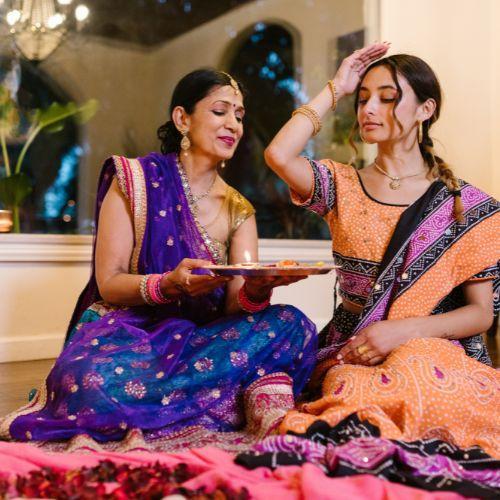Mises à jour récentes
-
মুম্বই সিটি ফুটবল ক্লাব বনাম বেঙ্গালুরু ফুটবল ক্লাব - এর পরিসংখ্যান
মুম্বাই সিটি ফুটবল ক্লাব (MCFC) এবং বেঙ্গালুরু ফুটবল ক্লাব (BFC)-এর মধ্যে সাম্প্রতিক পরিসংখ্যান অনুসারে, দুটি দলই ইন্ডিয়ান সুপার লিগের (ISL) শীর্ষস্থানীয় প্রতিযোগী। ২০২৪ সালের ২ অক্টোবর অনুষ্ঠিত ম্যাচটি ০-০ সমতায় শেষ হয়েছে। উভয় দলই এ মৌসুমে বেশ কিছু শক্তিশালী পারফরম্যান্স প্রদর্শন করেছে।
পরিসংখ্যান:
লিগ অবস্থান: বেঙ্গালুরু বর্তমানে ISL-এ দ্বিতীয় অবস্থানে রয়েছে, আর মুম্বাই সিটি রয়েছে দশম স্থানে।
গোল সংখ্যা:
বেঙ্গালুরু: ১৫ গোল করেছে এবং ৭ গোল হজম করেছে।
মুম্বাই সিটি: ৮ গোল করেছে এবং ১২ গোল হজম করেছে।
শীর্ষ গোলদাতা:
বেঙ্গালুরুর পক্ষে সুনীল ছেত্রী ৪ গোল করে দলের সেরা গোলদাতা।
মুম্বাই সিটির পক্ষে নিকোলাস কারেলিস ৫ গোল করেছেন।
কার্ড সংখ্যা:
বেঙ্গালুরুর এডগার মেন্ডেজ এবং চিংলেনসানা সিং দুজনেই ৪টি করে হলুদ কার্ড পেয়েছেন।
মুম্বাই সিটির ফ্র্যাঙ্কলিন নাজারেথ ১.৮৪ কার্ড প্রতি ম্যাচের গড়ে সবচেয়ে শৃঙ্খলাভঙ্গকারী খেলোয়াড়।
ম্যাচ বিশ্লেষণ:
উভয় দলই গত কয়েক ম্যাচে মিশ্র ফলাফল পেয়েছে। বেঙ্গালুরু তাদের প্রতিরক্ষা এবং আক্রমণে ভারসাম্যপূর্ণ পারফরম্যান্স দেখাচ্ছে, যেখানে মুম্বাই সিটি তাদের আক্রমণভাগের ধারাবাহিকতার অভাবে ভুগছে।
এ ধরনের বিশ্লেষণ মুম্বাই সিটি এবং বেঙ্গালুরুর ভবিষ্যৎ পারফরম্যান্স মূল্যায়নে সাহায্য করতে পারে। আরও বিস্তারিত জানতে, Sofascore বা FootyStats দেখুন।
FOOTYSTATS
SOFASCOREমুম্বই সিটি ফুটবল ক্লাব বনাম বেঙ্গালুরু ফুটবল ক্লাব - এর পরিসংখ্যান মুম্বাই সিটি ফুটবল ক্লাব (MCFC) এবং বেঙ্গালুরু ফুটবল ক্লাব (BFC)-এর মধ্যে সাম্প্রতিক পরিসংখ্যান অনুসারে, দুটি দলই ইন্ডিয়ান সুপার লিগের (ISL) শীর্ষস্থানীয় প্রতিযোগী। ২০২৪ সালের ২ অক্টোবর অনুষ্ঠিত ম্যাচটি ০-০ সমতায় শেষ হয়েছে। উভয় দলই এ মৌসুমে বেশ কিছু শক্তিশালী পারফরম্যান্স প্রদর্শন করেছে। পরিসংখ্যান: লিগ অবস্থান: বেঙ্গালুরু বর্তমানে ISL-এ দ্বিতীয় অবস্থানে রয়েছে, আর মুম্বাই সিটি রয়েছে দশম স্থানে। গোল সংখ্যা: বেঙ্গালুরু: ১৫ গোল করেছে এবং ৭ গোল হজম করেছে। মুম্বাই সিটি: ৮ গোল করেছে এবং ১২ গোল হজম করেছে। শীর্ষ গোলদাতা: বেঙ্গালুরুর পক্ষে সুনীল ছেত্রী ৪ গোল করে দলের সেরা গোলদাতা। মুম্বাই সিটির পক্ষে নিকোলাস কারেলিস ৫ গোল করেছেন। কার্ড সংখ্যা: বেঙ্গালুরুর এডগার মেন্ডেজ এবং চিংলেনসানা সিং দুজনেই ৪টি করে হলুদ কার্ড পেয়েছেন। মুম্বাই সিটির ফ্র্যাঙ্কলিন নাজারেথ ১.৮৪ কার্ড প্রতি ম্যাচের গড়ে সবচেয়ে শৃঙ্খলাভঙ্গকারী খেলোয়াড়। ম্যাচ বিশ্লেষণ: উভয় দলই গত কয়েক ম্যাচে মিশ্র ফলাফল পেয়েছে। বেঙ্গালুরু তাদের প্রতিরক্ষা এবং আক্রমণে ভারসাম্যপূর্ণ পারফরম্যান্স দেখাচ্ছে, যেখানে মুম্বাই সিটি তাদের আক্রমণভাগের ধারাবাহিকতার অভাবে ভুগছে। এ ধরনের বিশ্লেষণ মুম্বাই সিটি এবং বেঙ্গালুরুর ভবিষ্যৎ পারফরম্যান্স মূল্যায়নে সাহায্য করতে পারে। আরও বিস্তারিত জানতে, Sofascore বা FootyStats দেখুন। FOOTYSTATS SOFASCORE0 Commentaires 0 Parts 4KB Vue 0 Aperçu1 Connectez-vous pour aimer, partager et commenter!
Connectez-vous pour aimer, partager et commenter! -
🔍 **The Truth About Bias: In Judgment of Others** 🔍
We all have our moments of judgment—forming opinions about others based on limited information. But how often do we stop to question the accuracy of these judgments? Here’s a thought-provoking truth about bias and how it impacts our perception of others:
1. **Snap Judgments**: Our brains are wired to make quick decisions for survival. While this was beneficial in ancient times, it often leads to inaccurate snap judgments in our modern social interactions.
2. **Confirmation Bias**: Once we form an opinion, we tend to seek out information that confirms our beliefs and ignore evidence to the contrary. This can reinforce stereotypes and prevent us from seeing the full picture.
3. **The Halo Effect**: We often let one positive trait of a person influence our overall perception of them, leading to skewed judgments. Conversely, the "horn effect" occurs when one negative trait unduly colors our view.
4. **Cultural Influences**: Our background, upbringing, and culture heavily influence our judgments. Being aware of these biases can help us approach others with more openness and understanding.
5. **Empathy and Understanding**: Taking a moment to empathize and understand someone’s circumstances can drastically change our judgment. Walking in someone else’s shoes, even figuratively, can lead to more compassionate and accurate perceptions.
6. **Continuous Learning**: Educating ourselves about different cultures, experiences, and perspectives can help mitigate our biases. This fosters a more inclusive and respectful environment in both personal and professional settings.
To cultivate a more balanced perspective:
- **Pause and Reflect**: Before making a judgment, take a moment to reflect on whether you have all the information.
- **Seek Diverse Opinions**: Engage with people from diverse backgrounds to broaden your understanding.
- **Challenge Your Assumptions**: Actively question your assumptions and look for evidence that may contradict them.
Understanding and addressing our biases is a continuous journey. By acknowledging our tendencies to judge and actively working to counteract them, we can foster more genuine connections and create a more inclusive world.
Let's commit to being more mindful of our judgments and strive to see the truth beyond our biases.
#BiasAwareness #Judgment #Empathy #Inclusion #PersonalGrowth #ContinuousLearning
---
What strategies do you use to check your biases and make fairer judgments? Share your thoughts and experiences in the comments below! 🌟🔍 **The Truth About Bias: In Judgment of Others** 🔍 We all have our moments of judgment—forming opinions about others based on limited information. But how often do we stop to question the accuracy of these judgments? Here’s a thought-provoking truth about bias and how it impacts our perception of others: 1. **Snap Judgments**: Our brains are wired to make quick decisions for survival. While this was beneficial in ancient times, it often leads to inaccurate snap judgments in our modern social interactions. 2. **Confirmation Bias**: Once we form an opinion, we tend to seek out information that confirms our beliefs and ignore evidence to the contrary. This can reinforce stereotypes and prevent us from seeing the full picture. 3. **The Halo Effect**: We often let one positive trait of a person influence our overall perception of them, leading to skewed judgments. Conversely, the "horn effect" occurs when one negative trait unduly colors our view. 4. **Cultural Influences**: Our background, upbringing, and culture heavily influence our judgments. Being aware of these biases can help us approach others with more openness and understanding. 5. **Empathy and Understanding**: Taking a moment to empathize and understand someone’s circumstances can drastically change our judgment. Walking in someone else’s shoes, even figuratively, can lead to more compassionate and accurate perceptions. 6. **Continuous Learning**: Educating ourselves about different cultures, experiences, and perspectives can help mitigate our biases. This fosters a more inclusive and respectful environment in both personal and professional settings. To cultivate a more balanced perspective: - **Pause and Reflect**: Before making a judgment, take a moment to reflect on whether you have all the information. - **Seek Diverse Opinions**: Engage with people from diverse backgrounds to broaden your understanding. - **Challenge Your Assumptions**: Actively question your assumptions and look for evidence that may contradict them. Understanding and addressing our biases is a continuous journey. By acknowledging our tendencies to judge and actively working to counteract them, we can foster more genuine connections and create a more inclusive world. Let's commit to being more mindful of our judgments and strive to see the truth beyond our biases. #BiasAwareness #Judgment #Empathy #Inclusion #PersonalGrowth #ContinuousLearning --- What strategies do you use to check your biases and make fairer judgments? Share your thoughts and experiences in the comments below! 🌟0 Commentaires 0 Parts 10KB Vue 0 Aperçu1
-
 WWW.FORBES.COMThis Founder Created A Social Media Platform For Authors That Aims To Disrupt The Publishing IndustryWhen Allison Trowbridge was writing her novel, she found herself incredibly frustrated by the process. That's what sparked her idea to create a social media platform centered around authors, allowing them to forge deeper connections with readers.0 Commentaires 0 Parts 4KB Vue 0 Aperçu1
WWW.FORBES.COMThis Founder Created A Social Media Platform For Authors That Aims To Disrupt The Publishing IndustryWhen Allison Trowbridge was writing her novel, she found herself incredibly frustrated by the process. That's what sparked her idea to create a social media platform centered around authors, allowing them to forge deeper connections with readers.0 Commentaires 0 Parts 4KB Vue 0 Aperçu1
-
0 Commentaires 0 Parts 4KB Vue 0 Aperçu1

-
🌟 **When You Can’t Write: Collage, Craft, Create!** 🎨✍️
Writer's block is a familiar foe for many of us. Staring at a blank page, waiting for inspiration to strike, can be frustrating and disheartening. But what if there’s a way to break free from this creative paralysis? Enter the world of collage, craft, and creation!
🔹 **Collage**: Cut, paste, and rearrange. Collect images, words, and snippets from magazines or old books. Let the randomness of your selections guide your creativity. This tactile process can spark new ideas and fresh perspectives.
🔹 **Craft**: Get your hands busy with something different. Try knitting, painting, or building something. Engaging in a different form of creativity can unlock new pathways in your brain and reignite your writing mojo.
🔹 **Create**: Embrace creativity in all its forms. Write a poem, sketch a scene, or compose a melody. The act of creating something, anything, can shake loose the cobwebs and help words flow again.
Sometimes, the best way to overcome writer's block is to step away from writing altogether. By exploring other creative outlets, you give your mind the freedom to wander and wonder, often leading to unexpected and delightful breakthroughs.
So next time you find yourself stuck, remember: when you can’t write, collage, craft, and create! 🌈
#Creativity #WritersBlock #Inspiration #Collage #Crafting #CreativeProcess #WritingTips #StayInspired #Innovation
🌟 **When You Can’t Write: Collage, Craft, Create!** 🎨✍️ Writer's block is a familiar foe for many of us. Staring at a blank page, waiting for inspiration to strike, can be frustrating and disheartening. But what if there’s a way to break free from this creative paralysis? Enter the world of collage, craft, and creation! 🔹 **Collage**: Cut, paste, and rearrange. Collect images, words, and snippets from magazines or old books. Let the randomness of your selections guide your creativity. This tactile process can spark new ideas and fresh perspectives. 🔹 **Craft**: Get your hands busy with something different. Try knitting, painting, or building something. Engaging in a different form of creativity can unlock new pathways in your brain and reignite your writing mojo. 🔹 **Create**: Embrace creativity in all its forms. Write a poem, sketch a scene, or compose a melody. The act of creating something, anything, can shake loose the cobwebs and help words flow again. Sometimes, the best way to overcome writer's block is to step away from writing altogether. By exploring other creative outlets, you give your mind the freedom to wander and wonder, often leading to unexpected and delightful breakthroughs. So next time you find yourself stuck, remember: when you can’t write, collage, craft, and create! 🌈 #Creativity #WritersBlock #Inspiration #Collage #Crafting #CreativeProcess #WritingTips #StayInspired #Innovation0 Commentaires 0 Parts 13KB Vue 0 Aperçu1
-
📚 **The Case Against Yearly Reading Goals** 📚
In today’s fast-paced world, setting yearly reading goals can often lead to “air-reading” – skimming through books just to hit a target rather than truly engaging with the material. But is this the best way to appreciate literature?
Reflecting on one good book deeply can be far more rewarding than breezing through many. Quality trumps quantity. A single, well-chosen book has the power to change perspectives, inspire new ideas, and offer profound insights. It’s about savoring the experience, immersing oneself in the story, and letting the book’s wisdom resonate.
By focusing on meaningful reflection rather than numbers, we can cultivate a richer reading experience. Take the time to ponder, discuss, and absorb the lessons from each book. Let’s shift our focus from counting books to truly valuing the reading journey.
Remember, it’s not about how many books you read, but how much the books you read enrich your life.
#ReadingGoals #QualityOverQuantity #BookLovers #DeepReading #ReflectiveReading📚 **The Case Against Yearly Reading Goals** 📚 In today’s fast-paced world, setting yearly reading goals can often lead to “air-reading” – skimming through books just to hit a target rather than truly engaging with the material. But is this the best way to appreciate literature? Reflecting on one good book deeply can be far more rewarding than breezing through many. Quality trumps quantity. A single, well-chosen book has the power to change perspectives, inspire new ideas, and offer profound insights. It’s about savoring the experience, immersing oneself in the story, and letting the book’s wisdom resonate. By focusing on meaningful reflection rather than numbers, we can cultivate a richer reading experience. Take the time to ponder, discuss, and absorb the lessons from each book. Let’s shift our focus from counting books to truly valuing the reading journey. Remember, it’s not about how many books you read, but how much the books you read enrich your life. #ReadingGoals #QualityOverQuantity #BookLovers #DeepReading #ReflectiveReading0 Commentaires 0 Parts 10KB Vue 0 Aperçu1
-
📚 **Book Review: "Eat, Pray, Love" by Elizabeth Gilbert** 🌍
Elizabeth Gilbert's "Eat, Pray, Love" is a transformative memoir that takes readers on an intimate journey of self-discovery and healing. After a painful divorce, Gilbert embarks on a year-long quest across three countries, seeking pleasure, spirituality, and balance.
In Italy, she indulges in the simple joys of eating, savoring every bite of pasta and pizza. Her time in India is spent at an ashram, where she delves deep into meditation and prayer, striving for inner peace. Finally, in Indonesia, she finds a blend of both worlds, learning to balance the physical and spiritual aspects of life.
Gilbert's writing is candid, humorous, and deeply reflective, making her journey relatable and inspiring. "Eat, Pray, Love" is more than just a travel memoir; it’s a guide to embracing life’s challenges and discovering true fulfillment.
Highly recommended for anyone seeking a heartfelt and honest exploration of life's ups and downs.
#BookReview #EatPrayLove #ElizabethGilbert #SelfDiscovery #TravelMemoir📚 **Book Review: "Eat, Pray, Love" by Elizabeth Gilbert** 🌍 Elizabeth Gilbert's "Eat, Pray, Love" is a transformative memoir that takes readers on an intimate journey of self-discovery and healing. After a painful divorce, Gilbert embarks on a year-long quest across three countries, seeking pleasure, spirituality, and balance. In Italy, she indulges in the simple joys of eating, savoring every bite of pasta and pizza. Her time in India is spent at an ashram, where she delves deep into meditation and prayer, striving for inner peace. Finally, in Indonesia, she finds a blend of both worlds, learning to balance the physical and spiritual aspects of life. Gilbert's writing is candid, humorous, and deeply reflective, making her journey relatable and inspiring. "Eat, Pray, Love" is more than just a travel memoir; it’s a guide to embracing life’s challenges and discovering true fulfillment. Highly recommended for anyone seeking a heartfelt and honest exploration of life's ups and downs. #BookReview #EatPrayLove #ElizabethGilbert #SelfDiscovery #TravelMemoir0 Commentaires 0 Parts 11KB Vue 0 Aperçu1
-
https://bookclubs.com/books/the-women-kristin-hannah-403475
 BOOKCLUBS.COMThe Women: A Novel by Kristin Hannah | BookclubsThe Women: A Novel by Kristin Hannah on Bookclubs, the website for organizing a bookclub0 Commentaires 0 Parts 7KB Vue 0 Aperçu1
BOOKCLUBS.COMThe Women: A Novel by Kristin Hannah | BookclubsThe Women: A Novel by Kristin Hannah on Bookclubs, the website for organizing a bookclub0 Commentaires 0 Parts 7KB Vue 0 Aperçu1
-
0 Commentaires 0 Parts 3KB Vue 0 Aperçu1

-
How do your personal experiences influence the characters and settings in your writing?How do your personal experiences influence the characters and settings in your writing?000 Commentaires 0 Parts 4KB Vue 0 Aperçu1

-
0 Commentaires 0 Parts 3KB Vue 0 Aperçu1

-
Some book reading tips for busy women.As a busy woman, finding time to read can be a challenge, but it's essential to prioritize self-improvement and relaxation. Here are some reading tips to help you make the most of your limited time: Set a Realistic Reading Goal: Start with achievable reading goals, such as reading a certain number of pages or chapters each day or week. Even if it's just 10-15 minutes a day, it can add up...0 Commentaires 0 Parts 16KB Vue 0 Aperçu
 2
2
-
0 Commentaires 0 Parts 4KB Vue 0 Aperçu1

-
What is reading habit?A reading habit refers to a regular and consistent practice of reading. It is the act of engaging with written material, such as books, magazines, newspapers, articles, or digital content, as a routine part of one's daily life. Developing a reading habit involves making reading a priority, dedicating time to reading regularly, and actively seeking out written material for enjoyment, knowledge,...0 Commentaires 0 Parts 18KB Vue 0 Aperçu1

-
EnjoyEnjoy0 Commentaires 0 Parts 4KB Vue 0 Aperçu1

-
Hey I'm new memberHey I'm new member0 Commentaires 0 Parts 5KB Vue 0 Aperçu1

-
0 Commentaires 0 Parts 5KB Vue 0 Aperçu1

Plus de lecture































